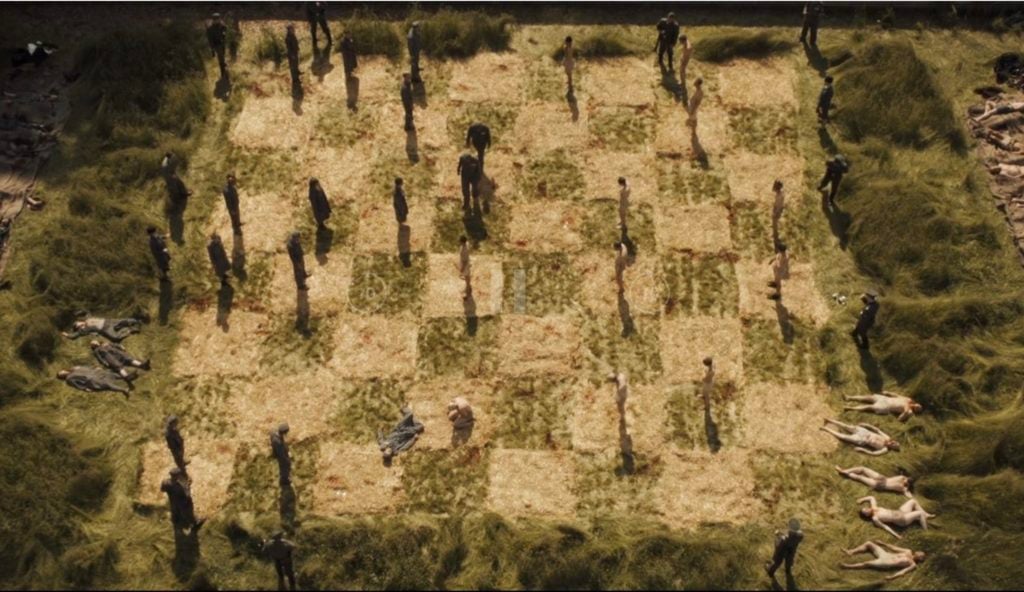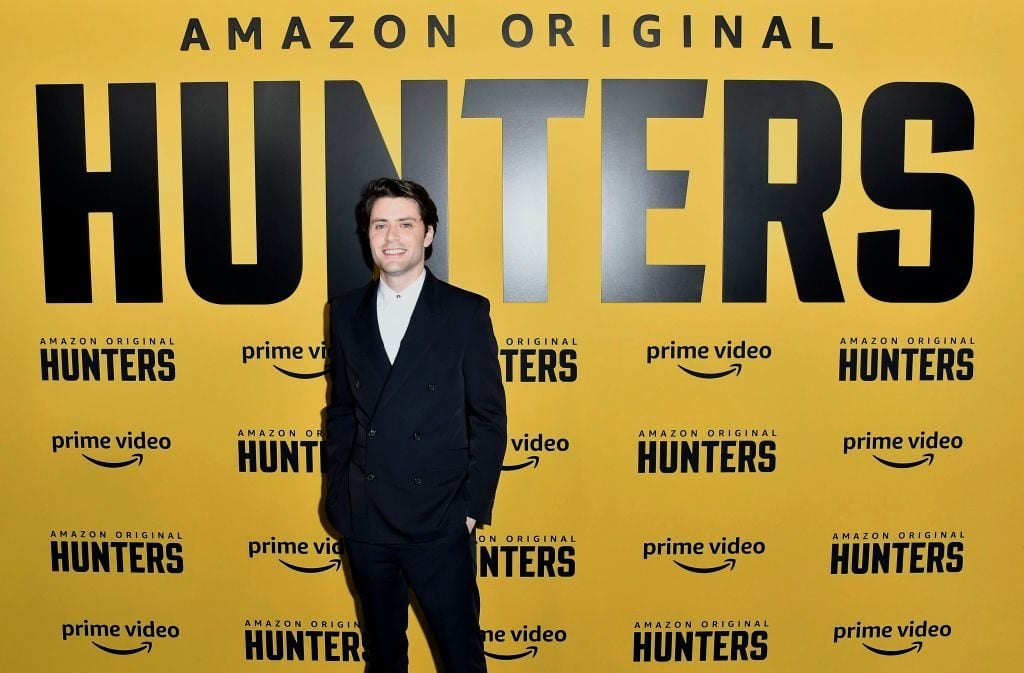Art World
The Auschwitz Museum Is Slamming Amazon’s New Show About Nazi Hunters for Taking Creative Liberties With the Holocaust
The show's creator says he didn't want to recreate "specific, real acts of trauma."

The show's creator says he didn't want to recreate "specific, real acts of trauma."

Taylor Dafoe

Amazon has come under fire for its new show Hunters, inspired by the true story of vigilante Nazi hunters in New York in the 1970s, which critics say is taking too many creative liberties with the facts surrounding the holocaust.
The Auschwitz-Birkenau Memorial and Museum in Poland took to Twitter this week to criticize Hunters for a scene depicting a human chess game at a concentration camp. In it, prisoners are moved around like pawns before being murdered. Such an event never took place, the museum says, adding that the show undermines the violence that did occur at concentration camps.
“Auschwitz was full of horrible pain & suffering documented in the accounts of survivors,” the institution wrote on Twitter. “Inventing a fake game of human chess for @huntersonprime is not only dangerous foolishness & caricature. It also welcomes future deniers. We honor the victims by preserving factual accuracy.”

David Weil attends the premiere of Amazon Prime Video’s Hunters at DGA Theater on February 19, 2020 in Los Angeles. Photo: Frazer Harrison/Getty Images.
David Weil, the creator and executive producer of the show, responded in a statement saying that the show “is a dramatic narrative series” and that it never purported to be a documentary. “In creating this series it was most important for me to consider what I believe to be the ultimate question and challenge of telling a story about the Holocaust: how do I do so without borrowing from a real person’s specific life or experience?” he wrote, adding that his grandmother was an Auschwitz survivor.
“[W]hy did I feel the need to create a fictional event when there were so many real horrors that existed?” he added. “I simply did not want to depict those specific, real acts of trauma.”
In response to Weil’s statement, a spokesperson for the museum, Pawel Sawicki, said, “I believe that even authors of fiction have a responsibility to preserve factual reality when they decide to use an authentic place of human suffering in their work. This way they can honor and respect the victims but also educate their audiences.”
Amazon did not immediately respond to a request for comment.
Earlier this month, the museum also joined the UK-based Holocaust Educational Trust in demanding that Amazon and its CEO, Jeff Bezos, stop selling a trio of children’s books written by Julius Streicher, the founder of an anti-Semitic newspaper known for perpetuating Nazi propaganda.
Nazi propaganda has no place on the electronic bookshelves of our country.
We call on @AmazonUK to remove the Nazi propaganda it has on sale. pic.twitter.com/r18rHQtZNv
— H.E.T. (@HolocaustUK) February 21, 2020
In a letter addressed to Amazon UK, the Holocaust Educational Trust’s chief executive, Karen Pollock, honed in on Streicher’s book The Poisonous Mushroom, which overtly compares Jews to the titular fungi. (“Just as poisonous mushrooms often lead to the most dreadful calamity, so the Jew is the cause of misery and distress, illness and death,” reads a passage in the book.) The book was used as evidence against Streicher during the Nuremberg trials, where he was found guilty of crimes against humanity and sentenced to death.
“As the Holocaust moves from living history to history, our survivors regularly raise the concern that Holocaust denial and antisemitism still persist,” Pollock writes. “It is worrying that distinguished publishers like Amazon would make available products that promote racist or hate speech of any kind, let alone those from the darkest period of European history.”
“We believe that providing access to the written word is important, including books that some may find objectionable,” an Amazon spokesperson wrote in a statement responding to the Holocaust educators’ demands. The company confirmed to Artnet that it has since removed Streicher’s books.